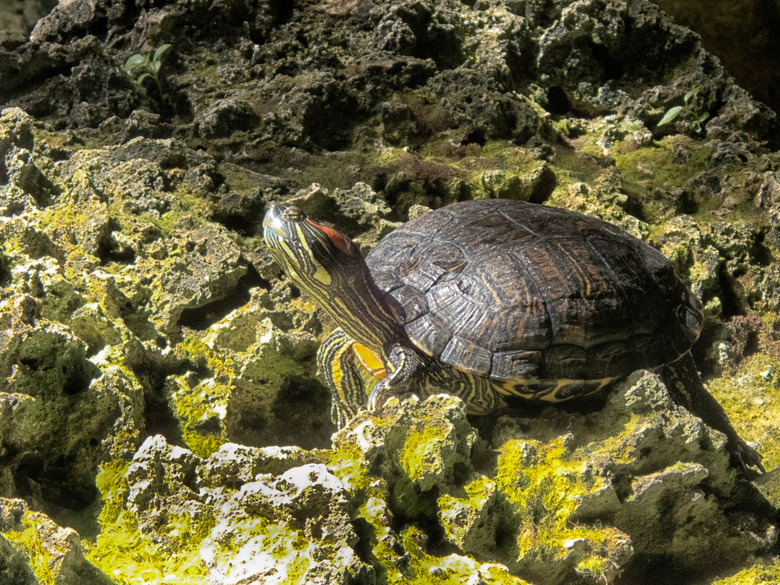Proper Bait For Live Turtle Traps
The success of a turtle trap in controlling the local population often relies on how well the bait can attract turtles. Turtle traps range from floating pans to holes dug into the ground, but nearly all of them rely on the proper bait. Various kinds of meat, whether dead or alive, should be the first choice in bait.
Fish
Fish
Fish constitutes a significant portion of a wild turtle's diet and is often the most effective bait in a live trap. Place bluegill, small bass or minnows in a live turtle trap, either by placing hooks through them or securing their fins with fishing line and attaching them to the trap or a dock. Catfish heads or other fish scraps are another easy and inexpensive source of bait for a live trap.
Tough Beef Cuts
Tough Beef Cuts
Beef cuts are another source of meat used in live turtle traps. Tougher beef cuts tend to last better in the water than softer meats or ground beef. Use inexpensive cuts, such as the neck, to attract the turtles. You may be able to collect scraps from the local butcher. Tougher cuts will also last longer if the bait has fish feeding on it as well.
Vegetables
Vegetables
In the absence of meat, various kinds of vegetables can be used as bait in a live turtle trap. Lettuce is a popular vegetable bait, although other types of greens have been known to work as well. Vegetables that are left over from meals can be used as a free source of turtle bait, although a turtle may avoid highly seasoned food. There is also less chance of vegetables being eaten by fish in the water, although it does not lure the turtles as well as meat.
Worms
Worms
Although worms do not work as well as fish or beef cuts for catching turtles, they are a free bait source and readily available. Fisherman often inadvertently catch turtles when they strike at the worm on the hook. Worms can be placed in a bait bag to prevent fish from eating them before the turtle can find the trap.
Cite This Article
MLA
Yuetter, Clayton. "Proper Bait For Live Turtle Traps" sciencing.com, https://www.sciencing.com/proper-bait-live-turtle-traps-8566635/. 22 November 2019.
APA
Yuetter, Clayton. (2019, November 22). Proper Bait For Live Turtle Traps. sciencing.com. Retrieved from https://www.sciencing.com/proper-bait-live-turtle-traps-8566635/
Chicago
Yuetter, Clayton. Proper Bait For Live Turtle Traps last modified March 24, 2022. https://www.sciencing.com/proper-bait-live-turtle-traps-8566635/
